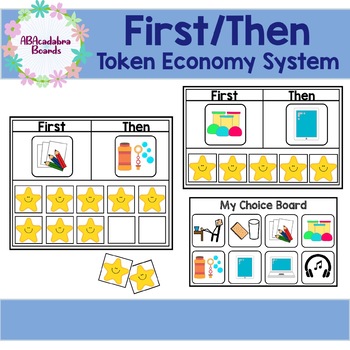A token economy is an effective behavior management system that can be implemented in various settings, including classrooms, therapy sessions, and even at home. This system uses tokens or points as a form of positive reinforcement to encourage desired behaviors and discourage undesired behaviors. By providing immediate rewards for desirable actions, individuals are motivated to consistently exhibit positive behaviors.
 Token Economy
Token Economy
The use of a token economy in a classroom setting can greatly enhance the overall learning experience for students. It provides a structured framework that promotes positive behavior and reduces disruptive actions. By implementing a reward system, teachers can create a positive and engaging learning environment that fosters student success.
 Positive Reinforcement
Positive Reinforcement
One of the key components of a token economy system is the use of positive reinforcement. Instead of focusing on punishment for undesired behavior, this approach emphasizes rewarding and reinforcing appropriate actions. This positive reinforcement motivates individuals to continue demonstrating the desired behaviors, as they associate them with earning tokens or rewards.
In a token economy system, tokens can be earned for a variety of positive behaviors, such as completing assignments, participating in class discussions, following rules, and helping others. These tokens can then be exchanged for rewards or privileges, providing a tangible incentive for students to maintain positive behavior.
 Applied Behavior Analysis
Applied Behavior Analysis
Token economies are often utilized in conjunction with applied behavior analysis (ABA) techniques. ABA is a therapeutic approach that focuses on understanding and modifying behavior through systematic observation and positive reinforcement. It is particularly effective for individuals with autism spectrum disorder (ASD) and other developmental disabilities.
In an ABA-based token economy, specific target behaviors are identified, and tokens are given for demonstrating those behaviors. These tokens can then be exchanged for preferred activities or items. This approach helps individuals with ASD learn new skills, reduce problem behaviors, and improve overall social interactions.
 Designing an Effective Token Economy System
Designing an Effective Token Economy System
When implementing a token economy system, careful planning and design are crucial for its effectiveness. Here are some key steps to consider:
1. Identify Target Behaviors: Clearly define the behaviors that will earn tokens. These behaviors should be specific, measurable, and achievable.
2. Determine Token Values: Assign a specific value or amount to each token earned. This can be done using a point system or physical tokens such as coins or tokens.
3. Establish Rewards: Decide on the rewards or privileges that can be attained through token redemption. It is important to select rewards that are meaningful and motivating to the individuals participating in the token economy.
4. Set Clear Expectations: Clearly communicate the rules and expectations of the token economy system to all participants. This includes explaining how tokens can be earned, what they can be exchanged for, and any consequences for negative behavior.
5. Monitor Progress: Regularly track and monitor the progress of individuals participating in the token economy. This can be done through observation, data collection, or daily checklists. It is essential to provide timely feedback and reinforcement to maintain motivation and engagement.
 First Then Token Economy System Boards
First Then Token Economy System Boards
One popular tool used in token economies is the “First Then” board. These visual aids provide a clear sequence of tasks or activities, indicating what needs to be done first and what will be earned as a reward. The visual representation helps individuals better understand expectations and encourages task completion.
Token economies have proven to be highly effective in promoting positive behavior and facilitating skill development. They empower individuals to take ownership of their actions and encourage them to make positive choices. By incorporating token economies into various settings, such as classrooms or therapy sessions, individuals are provided with the tools they need to succeed and thrive in their environment.
Implementing a token economy requires thoughtful planning, consistency, and ongoing evaluation. As with any behavior management system, it is essential to tailor the token economy to the unique needs of the individuals involved. By doing so, educators, therapists, and parents can create a positive and supportive environment that fosters growth and success.
So why not give the token economy system a try? With its focus on positive reinforcement and rewards, it can be a valuable addition to any educational or therapeutic setting. By implementing this system, you can create a positive and engaging environment that promotes learning, growth, and success.